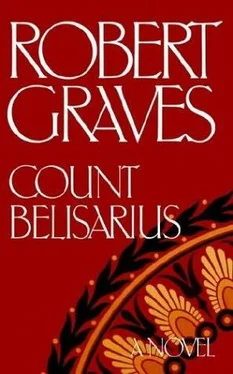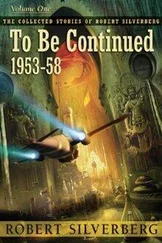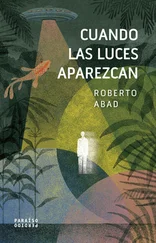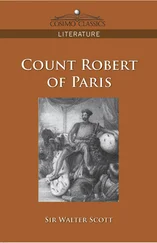Robert Graves - Count Belisarius
Здесь есть возможность читать онлайн «Robert Graves - Count Belisarius» весь текст электронной книги совершенно бесплатно (целиком полную версию без сокращений). В некоторых случаях можно слушать аудио, скачать через торрент в формате fb2 и присутствует краткое содержание. Жанр: Исторические приключения, на английском языке. Описание произведения, (предисловие) а так же отзывы посетителей доступны на портале библиотеки ЛибКат.
- Название:Count Belisarius
- Автор:
- Жанр:
- Год:неизвестен
- ISBN:нет данных
- Рейтинг книги:3 / 5. Голосов: 1
-
Избранное:Добавить в избранное
- Отзывы:
-
Ваша оценка:
- 60
- 1
- 2
- 3
- 4
- 5
Count Belisarius: краткое содержание, описание и аннотация
Предлагаем к чтению аннотацию, описание, краткое содержание или предисловие (зависит от того, что написал сам автор книги «Count Belisarius»). Если вы не нашли необходимую информацию о книге — напишите в комментариях, мы постараемся отыскать её.
Count Belisarius — читать онлайн бесплатно полную книгу (весь текст) целиком
Ниже представлен текст книги, разбитый по страницам. Система сохранения места последней прочитанной страницы, позволяет с удобством читать онлайн бесплатно книгу «Count Belisarius», без необходимости каждый раз заново искать на чём Вы остановились. Поставьте закладку, и сможете в любой момент перейти на страницу, на которой закончили чтение.
Интервал:
Закладка:
As they rode, they discussed the fate which their captive should suffer. The Sergeant invited his men to make suggestions. One said: 'Let us tie a stone to his neck and throw him into a pond.' But Simeon objected loudly: 'It is a crime before God to poison water. My corpse would spread a pestilence. Besides, what you propose is not a strange death: it is the common death that slave girls give to puppies. Think again!' The Sergeant agreed that Simeon was right, and they rode on farther.
Then another of the Cappadocians proposed that they should lash him to a tree and shoot him full of arrows. Simeon again interrupted: 'Would you blaspheme by inflicting on a mere tax-gatherer the very death suffered by the holy martyr Sebastian of Milan?' This also seemed an objection to be respected, so they rode on farther yet. A third man suggested impaling, and a fourth flaying, and the fifth was for burying Simeon alive. But each time Simeon poured scorn on these suggestions, and told them that they would certainly be punished by their master if they were to return and report that they had put him to death by so commonplace or trifling a means. The Sergeant took his part and said at last: 'If you can tell us a sort of death that is strange enough, I shall be grateful to you and carry it out just as you wish.'
Simeon replied: 'Let your master pay his debt voluntarily. Then, be sure, I will the of astonishment, and no stranger death will ever have been recorded in the Diocese of Thrace.'
The Sergeant struck him on the mouth for his impudence, but was still undecided as to the manner of his death. It came on to rain, and the Cappadocians saw a light burning in the inn, so they tied up their horses in the stable and came inside for a drink of wine and further consultation.
Palaeologus now heard them mention their master's name, and knew him by reputation for a rancorous and quarrelsome man, so was anxious to do nothing to affront these servants. He asked them whether they would do him the honour of drinking wine at his expense.
The unmannerly Sergeant made no reply, but, finding himself near the cooking-pot, which was giving off a very savoury smell, turned to his companions and cried:' We are in luck, bullies! This old bearded fellow has foreseen our coming and cooked a hare for us.'
Palaeologus pretended to take this in joke. He said to the Sergeant: 'Best of Greeks, this hare is not sufficient for ten grown men and two boys, one of whom, moreover, is a nobleman. But if you yourself, and perhaps one other, care to join us…'
The Sergeant replied: 'Impudent old beard, you are well aware that this is not your hare. It is a stolen one, doubtless the property of my master John, and you shall have no share in it at all. What is more, when our meal is over you shall pay me, on my master's account, a fine for your theft. You shall hand over ten gold pieces or as much more as I find in your pockets. As for your nobleman, he shall wait on us. Bullies, guard the door! Now disarm the two slaves!'
Palaeologus saw that it was useless to resist. He told Andreas and the porter to give up their arms peaceably, and they did so. But Armenian John and especially Belisarius who had shot the hare and was eager for a taste of it, were greatly enraged. But they said nothing. Then Belisarius remembered the cave of the Cyclops and decided to make these ruffians as drunk as possible, so as to have the advantage of them if it came to a struggle.
Very politely he began acting as cup-bearer, pouring out the wine without any admixture of water, and saying: 'Drink, gentlemen, it is good wine, and you have nothing to pay.' Because the pepper made the soup very hot for the Cappadocians, they drank more wine perhaps than they otherwise would have done. They toasted him as their Ganymede, and would have kissed him, but he eluded them. Then one of them went into the kitchen to catch the slave girl and began pulling off her smock, but she ran out of the house and hid among the bushes, where he could not find her; so he returned.
The Cappadocians began in their cups to discuss religious dogma.
This is the disease of the age. One would expect farmers, for instance, when they come together, to talk about animals and crops, and soldiers about battles and military duties, and prostitutes perhaps about clothes and beauty and their success with men. But no, wherever two or three are gathered together, in tavern, barracks, brothel, or anywhere else, they immediately begin discussing with every assumption of learning some difficult point of Christian doctrine. Then, as the main disputes of the various Christian churches have always been concerned with the nature of the Deity, that most tempting point of philosophical debate, so naturally these drunken Cappadocians began, not without blasphemy, to lay down the law on the nature of the Holy Trinity and especially of the Second Person, the Son. They were all Orthodox Christians, and seemed to hope that Palaeologus would raise his voice in dispute. But he did not, for he held the same opinions as they.
However, Simeon soon revealed himself as one of the Monophysites. The Monophysites were a sect powerful in Egypt and Antioch, and during the last generation or two had brought the Empire into much danger. For the Emperors at Constantinople were obliged to choose between offending the Pope of Rome, who was the recognized successor of the Apostle Peter and had condemned the sect as heretical, and offending the people of Egypt on whose goodwill Constantinople depended for its corn. Some Emperors had inclined to the one view and some to the other; some had tried to find grounds for a compromise. There had been destructive riots, and wars, and scandals in the Churches because of this dispute; and at the time of which I write there was a clear schism between the Church of the East and the Church of the West. The reigning Emperor, old Anastasius, tended to favour the Monophysites; therefore the burgess Simeon, to annoy these Cappadocians, nude his loyalty to the Emperor equivalent to his Monophysitism.
Simeon proved too eloquent for them, though all shouted at once; so they called on Palaeologus as a scholar to defend the Orthodox point of view on their behalf, which he gladly did. Armenian John, nudged by Belisarius, plied them with more drink as they listened to the disputation.
Palaeologus quoted the words of Pope Leo, which I forget myself, if I ever heard them, but which I gather were to this effect: that the Son is not God only, which is the view of the insane Acuanitcs; or man only, which is the view of the impious Plotinians; nor man in the sense of lacking something or other of the divine, as the foolish Apollinarians hold; but that He has two united natures, human and divine, according to the texts 'I and My Father are one' and also 'My Father is greater than I'; and that the human nature, by which the Son is inferior to the Father, does not diminish from the divine nature, by which the Son is the equal of the Father.
The Cappadocians cheered Palaeologus when he recited this decision, rattling their cups on the tabic or banging with their beech-wood bowls. They did not notice that Belisarius, under the table, was tying their feet together with a length of tough twine — not so tightly that none of them could stir his feet for comfort, but tightly enough to incommode them greatly if they all tried to rise together; for he had tied them in a narrow circle.
Then Simeon ridiculed Palaeologus, and said that to brush aside false doctrine of Acuanitc or Apollinarian or Plotinian was not by any means the same as stating true doctrine; and that for a priest to be elected Pope of Rome did not give him a right to lay down the Christian law finally, and that a Pope might say and do things for political reasons that were injurious both to his God and to his Emperor. Simeon also said that the Son's nature could not be split into two as a man splits faggots with an axe. The Son's doings and sufferings were neither wholly divine nor wholly human, but all of a piece — Godman-like. Thus: the Son walked on the waters of Galilee, which was an act performed through the flesh but transcending the laws of the nature of flesh.
Читать дальшеИнтервал:
Закладка:
Похожие книги на «Count Belisarius»
Представляем Вашему вниманию похожие книги на «Count Belisarius» списком для выбора. Мы отобрали схожую по названию и смыслу литературу в надежде предоставить читателям больше вариантов отыскать новые, интересные, ещё непрочитанные произведения.
Обсуждение, отзывы о книге «Count Belisarius» и просто собственные мнения читателей. Оставьте ваши комментарии, напишите, что Вы думаете о произведении, его смысле или главных героях. Укажите что конкретно понравилось, а что нет, и почему Вы так считаете.












